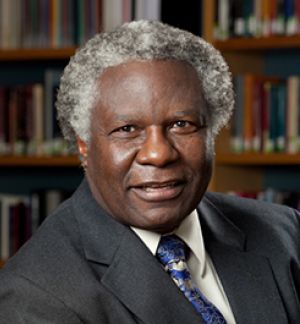The recent post-election violence was characterised by the Western Press as a result of unresolved ethnic tensions.
But beneath this superficial view lie more profound constitutional tensions arising from interactions between democratic politics and economy.
The constitutional orders put in place in much of Africa, following independence, were largely a continuation of the colonial economic order. The associated governance structures are being swept aside by globalisation, demographic change, and demands for democratic liberties.
Much of Africa has in effect come to the end of the first republics, and some of the political crises on the continent are a result of the pressure to create new constitutional orders guided by the creation of economic opportunities.
Countries that have previously failed to make this constitutional transition have degenerated into civil wars.
KENYA’S POST-ELECTION VIOLENCE was a sign of the changing times. The country must craft a new constitutional order that expands economic opportunities by extending the coverage of physical infrastructure, investing in expanding the skill base of the population and boosting youth employment, stimulating new businesses, and deepening regional integration.
These objectives will help guide future discussions on the country’s constitutional reform.
Kenya has the basic liberties needed to turn its attention to economic renewal. It has vibrant civil press sectors supported by advances in information communication technologies. Text messaging, community radio and blogging keep leaders under check.
This space will expand with the growing internet connectivity, and the advent of high speed internet will help to consolidate this sector.
The challenge for Kenya is consolidating basic liberties and crafting a new constitutional order that will expand economic opportunities for all.
This will require creating new economic freedoms that include access to better infrastructure, technical training and business opportunities.
Infrastructure projects can help stimulate growth by contributing to sustainable development (for example, by creating jobs and raising agricultural productivity).
They can also alleviate hunger by providing the physical infrastructure needed to advance agriculture. But these technological measures do not solve the challenges of poverty and hunger on their own. They must be part of an integrated strategy aimed at improving overall human welfare.
Information and communications technologies (ICT), which impact nearly all fields of endeavour, can also play a critical role in expanding primary, secondary and higher education.
For example, ICT can facilitate distance learning and offer remote access to educational resources.
Many other technologies hold the promise of significantly upgrading human welfare, especially for women, in Africa by improving energy sources, agricultural technology and access to water and sanitation.
Technical and vocational training should also be a priority and become a key aspect of secondary education. Every constituency should have at least one technical training institute, and civil society organisations should be encouraged to upgrade the technical content of their operations.
Similarly, community radio stations can play a key role in promoting science and technology literacy. Another way to supplement the role of polytechnics is to create technology-based universities.
But providing technical training will not be sufficient without efforts to expand the business sector. Special attention must be given to the creation of new enterprises. Existing educational institutions can serve as key incubators of businesses.
IN ADDITION, SPECIAL PROGRAMMES to stimulate the growth of the business sector and youth employment should be promoted. Mentoring young people in business development and management must be given top priority.
Expanding economic opportunities will need to be pursued in close cooperation with neighbouring countries. Kenya must therefore play a leading role in facilitating the integration of eastern Africa.
While much of the concern over regional integration is complicated by the idea of having a federal president, efforts must be made to ensure that this political goal does not undermine the larger economic integration goals.
For example, harmonising technical standards in fields such as infrastructure, technical training and business practices will do more for Kenya and the region than have a common president.
The country’s relevance to the world will in future be judged by how well it serves as a gateway to the region and promoter of economic prosperity among its neighbours.
The challenge for Kenya is to use economic objectives to explicitly guide constitutional reform. Failure to recognise the connections between politics and the economy will diminish the country’s prospects for peace and stability.
Prof Juma teaches at the Harvard Kennedy School.
Juma, Calestous. “Only a New Constitution Can Guarantee a Better Kenya.” The Daily Nation, September 25, 2008




